‘Horrific torture’: Decades-old conflict separated by world’s second longest wall
Half a world away, a decades-long conflict is raging between two sides separated by the second-longest wall on earth, amid claims of “horrific torture”.
Half a world away, a decades-long conflict is raging between two sides separated by the second longest wall on earth.
The Polisario Front, a rebel nationalist liberation movement of the Sahrawi people, has been waging a sporadic guerrilla war against the government of Morocco since the 1970s for control of the resource-rich Western Sahara region.
In the eyes of the Kingdom of Morocco, backed by powerful allies including the US, the Polisario are terrorists funded and armed by the likes of Iran.
For the roughly one million Sahrawi, a group of nomadic desert tribes with a distinct language and culture to the Berbers of Morocco, the Polisario Front is considered their legitimate representative.
They are battling for the independence of the Sahrawi Arab Democratic Republic (SADR), which controls around one fifth of the vast disputed territory dubbed Africa’s “last colony”.
Long forgotten among the many simmering regional conflicts around the world, the war between Morocco and the Polisario Front has gained renewed attention in recent months.
Billions of dollars of foreign cash has flooded into the North African phosphate superpower, which saw a massive boom in revenue and investment following the global fertiliser supply shock in the wake of Russia’s invasion of Ukraine.
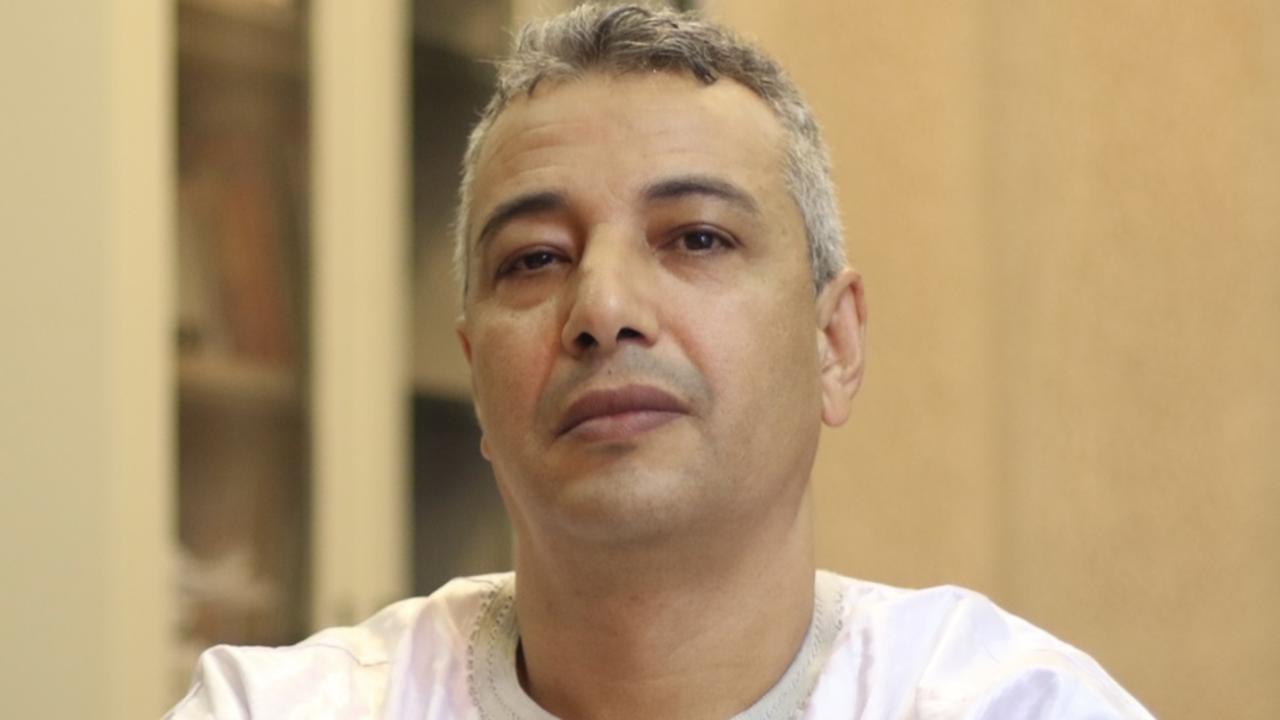
With that money comes fears among the Sahrawi that foreign companies will “plunder” their resources.
“We used to learn of many international organisations involved in Western Sahara [that] try to hide this involvement,” said Mohamed Mayara, a journalist and activist from Western Sahara. “There is manipulation of this kind.”
Mayara, co-founder and co-ordinator of Equipe Media, was on a speaking tour of Australia last month hoping to raise awareness of the plight of the Sahrawi people.
They’ve been fighting for independence for Western Sahara since 1975 when it was given up as a Spanish colony and subsequently claimed by Morocco to its north and Mauritania to its south.
His father, along with three of his uncles, were among those kidnapped and killed by Moroccan security forces when he was a baby.
“My father was killed under horrific torture in a secret jail in Morocco,” he said.
“I grew up in those conditions as my people experienced segregation and discrimination, as we faced waves of Moroccan settlers into Western Sahara to change the demographic situation.
“There is a systematic policy to change the demographics of Western Sahara, in violation of international law.”
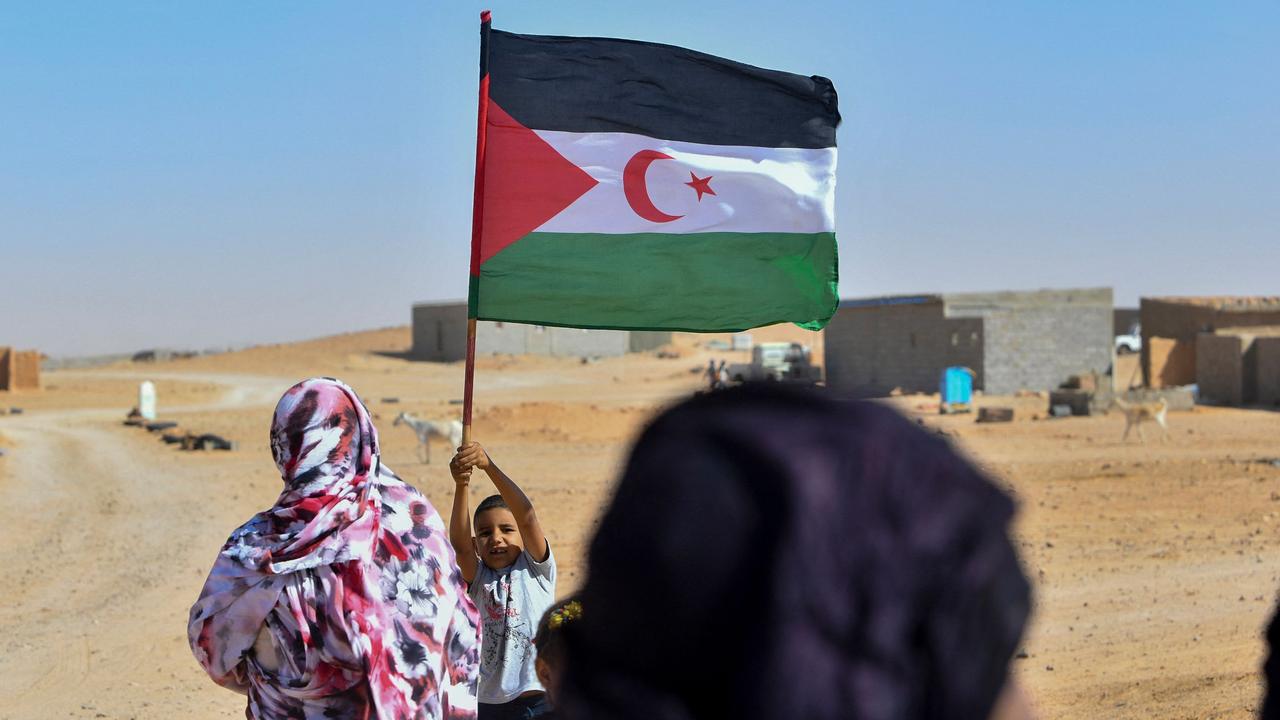
The former civil servant and public high school teacher, who lost his job over his support of Sahrawi independence, later helped found the citizen journalist collective as a way of getting their stories to the world.
They say Morocco routinely blocked international media and observers from the region.
“But the consequences were very severe,” he said.
Equipe Media says a number of its members have been arrested and are serving long sentences as “political prisoners”.
Human rights groups have accused Morocco of serious abuses in its brutal crackdown on the Sahrawi, including torture and forced confessions, and harassment of journalists and activists.
“Sahrawi people are denied [the right] to speak up about their political views,” Mayara said.
“Protests to call for the independence of Western Sahara were criminalised by Morocco. Also no one can talk about the plundering of natural resources [like] phosphate, fisheries, potentially oil and gas. The extractions they export largely benefit foreign companies that are involved in this illegal trade.”
Covering an area the size of Great Britain in northwest Africa with a long stretch of coastline on the Atlantic Ocean, Western Sahara is rich in minerals and natural resources, particularly fisheries, sitting just opposite the Canary Islands.
But the big money is in phosphate, used in the production of fertiliser, which is one of the kingdom’s biggest earners.
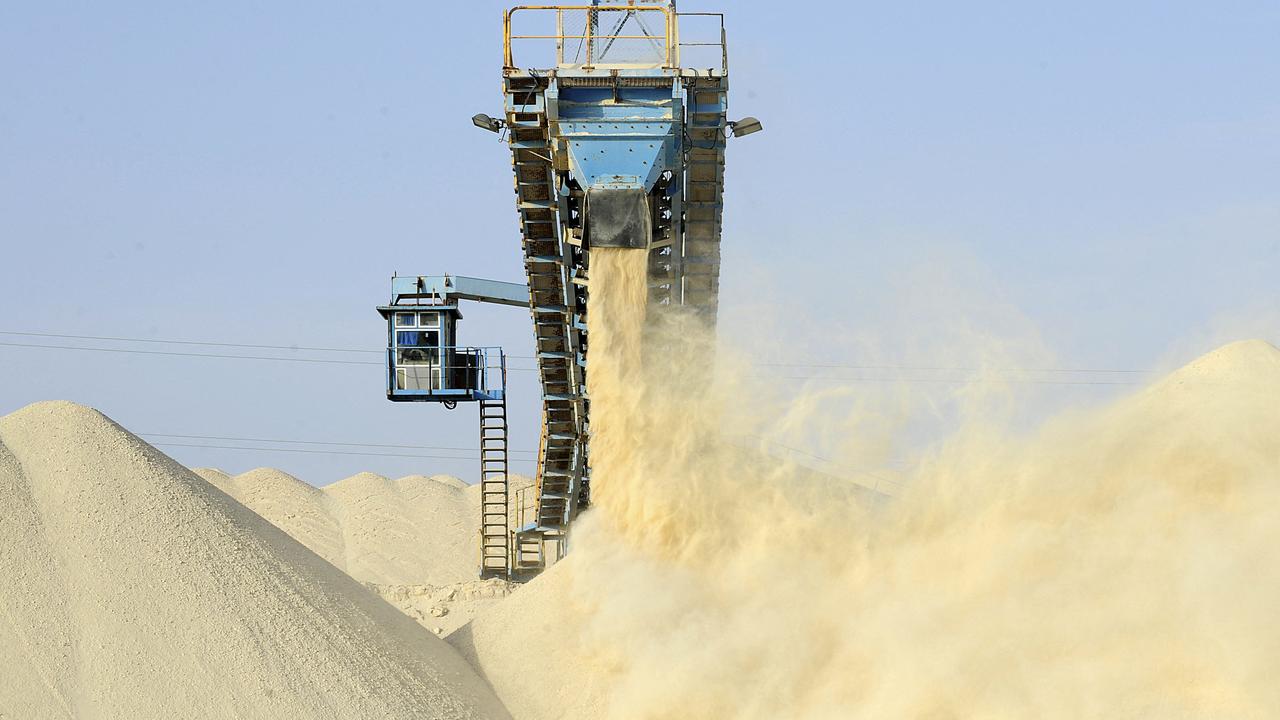
Morocco sits on about 70 per cent of global reserves, and record revenue since 2022 has lent the kingdom increased international leverage to push its claim over Western Sahara.
The United Nations and the International Court of Justice have recognised the right of self-determination for the Sahrawi people.
Mauritania abandoned its claim in 1979 in the face of relentless attacks by Polisario fighters, but Morocco continued to claim sovereignty over the territory, which it considers an integral part of its kingdom.
Morocco has long rejected demands to hold a referendum on Sahrawi independence.
The SADR is considered a partially recognised state, recognised by several dozen mainly African and Arab UN members, notably Iran and neighbouring Algeria, which hosts a number of Sahrawi refugee camps and has long supported the Polisario cause.
The border between Morocco and Western Sahara is separated by the second-longest wall on earth, a 2700-kilometre structure surrounded by the world’s longest minefield, built with the aid of US weapons manufacturers following the first bloody guerrilla war in the 1970s.
A UN-backed ceasefire was signed in 1991, but fighting between the two groups broke out again in 2020 and the 29-year truce was torn up after the Polisario Front accused Morocco of provocation by resuming military operations in the El Guergarat crossing buffer zone.
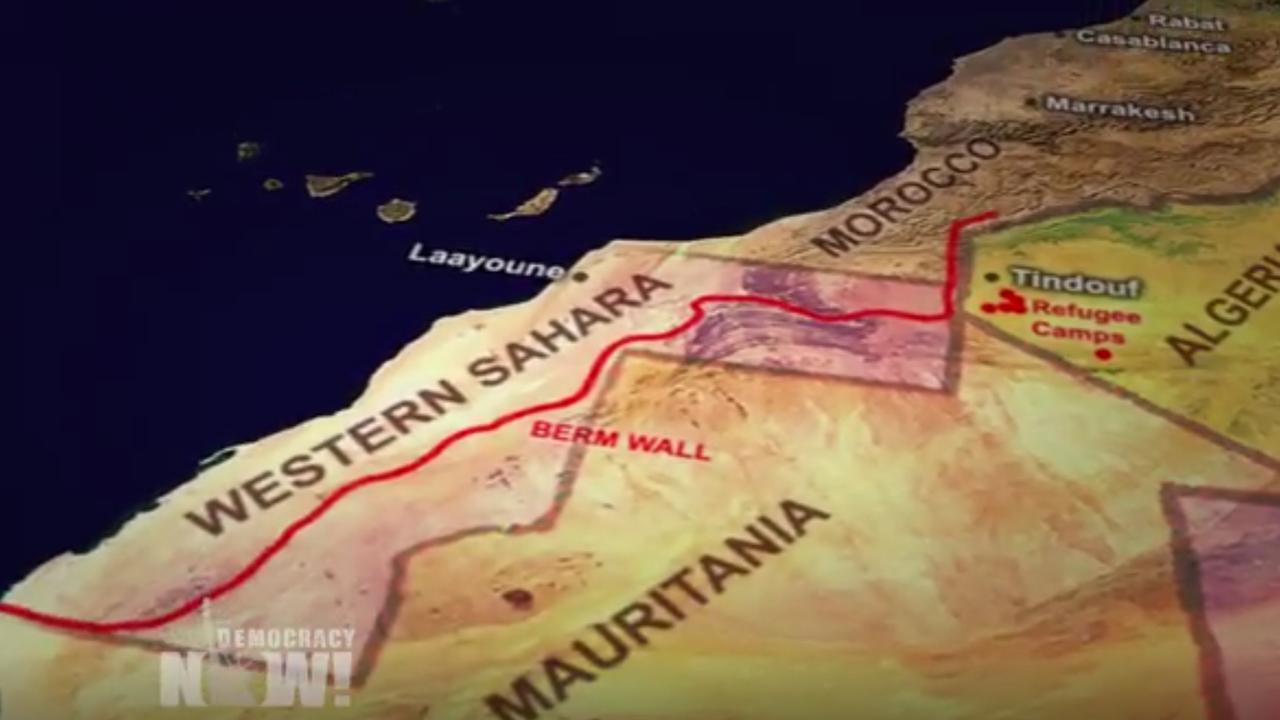
Morocco “seriously undermined not only the ceasefire and related military agreements but also any chances of achieving a peaceful and lasting solution to the decolonisation question of the Western Sahara”, Polisario Front leader Brahim Ghali said in a letter to the UN at the time.
The country’s foreign ministry said the border operation was in response to the Polisario Front allegedly blocking the movement of people and goods and harassing UN troops at the crossing, although this claim was denied by the UN.
“Morocco remains firmly attached to the preservation of the ceasefire, noting that the operation carried out by the Royal Armed Forces aims precisely to consolidate the ceasefire by preventing the recurrence of such serious and inadmissable acts that violate the military agreement and threaten regional security and stability,” the ministry said.
In an October update to the UN Security Council on the situation in Western Sahara, Secretary General António Guterres said he remained “deeply concerned” by the deteriorating conditions.
“The continued hostilities and lack of a ceasefire between Morocco and [Polisario Front] remain a major setback to the achievement of a political solution to this longstanding dispute,” he said.
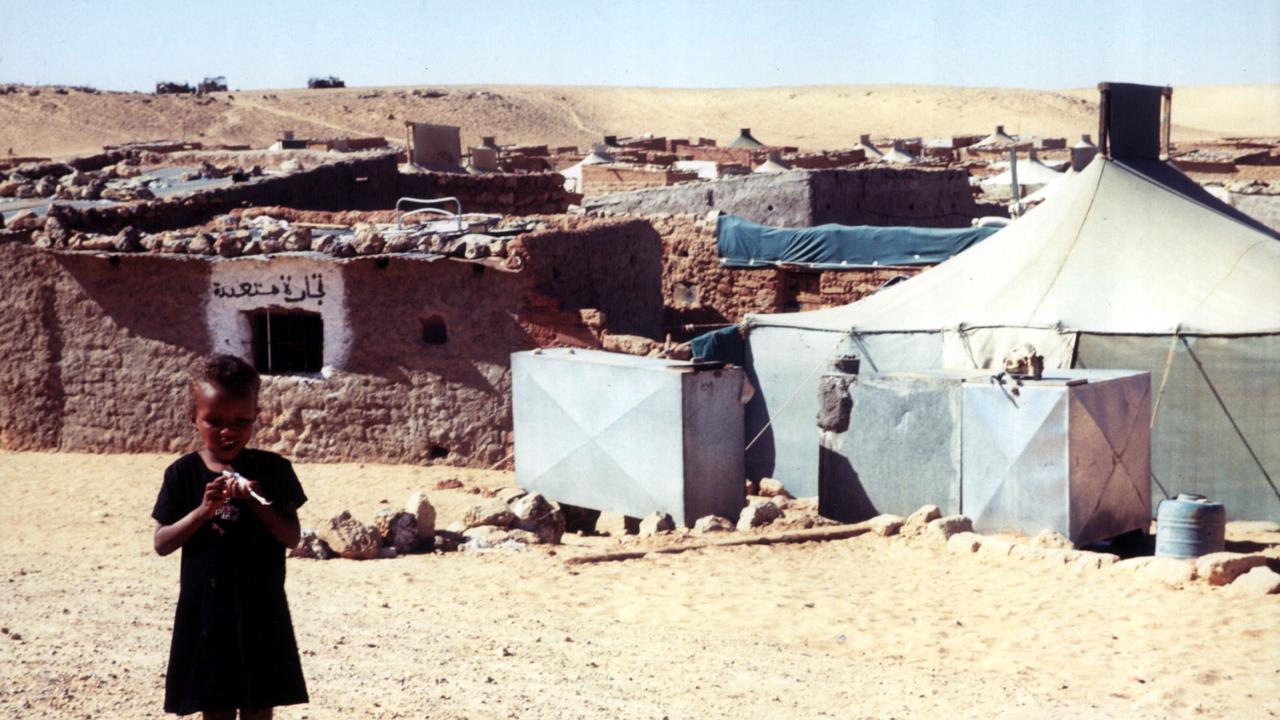
“Daily incursions into the buffer strip adjacent to the berm and hostilities between the parties in this area violate its status as a demilitarised zone and further threaten the stability of the region, with a real risk of escalation while hostilities persist.
“Aerial strikes and firing across the berm continued to contribute to increasing tensions. In this context, it is critical for a ceasefire to be re-established. This challenging context makes negotiating a political solution to the question of Western Sahara more urgent than ever, almost five decades into the conflict.”
Morocco, for its part, has accused Iran and its Lebanese Shi’ite proxy, Hezbollah, of training and arming the Polisario Front, a claim denied by Iran, and has also accused Polisario of working with Sunni terror group al-Qaeda.
Kamal Fadel, the Australian spokesman for the Polisario Front, maintains this is “baseless Moroccan propaganda”.
“During the Cold War they were saying we were communists, when that was not the fashion anymore they said we are linked to al-Qaeda, and when that was not working now they link us to Shi’a Iran and Hezbollah,” Mr Fadel said.
“When Morocco was asked to provide evidence of this link they couldn’t provide anything. It’s just to create fear amongst the international community.”
Mayara said the goal of his visit was to “ bring the voice of the Sahrawi voiceless” to Australia.
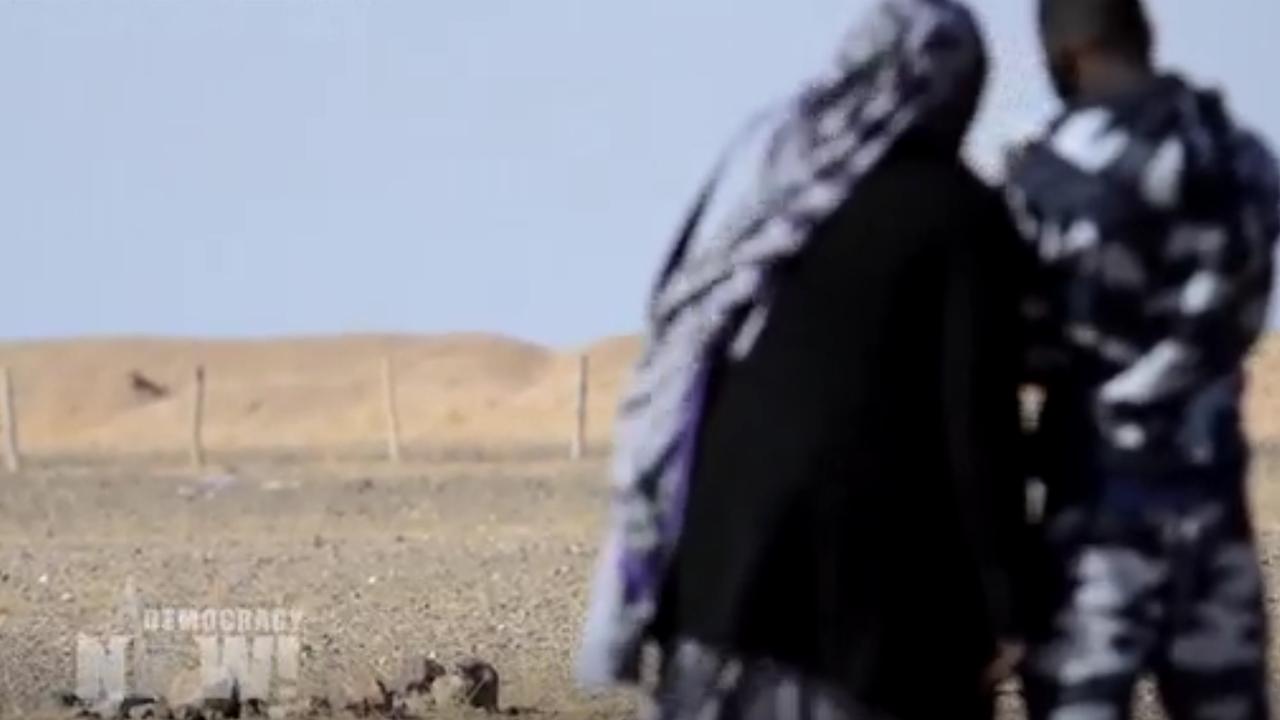
He also called on foreign companies to directly engage with Polisario as the representatives of Western Sahara, adding he believed the group would be “very flexible” in developing the region’s natural resources.
“My people face significant economic hardship,” he said.
“We have a high level of poverty, limited access to healthcare, education, employment opportunities. We would be very happy [for foreign companies] to be involved in activities [in Western Sahara] with the consent of Polisario, that would be very useful.”
However he conceded any such venture would be “complicated”, to put it mildly.
Australia’s Department of Foreign Affairs and Trade (DFAT) notes that “given the status of Western Sahara as a non-self-governing territory, there are international law considerations with importing natural resources sourced from Western Sahara”.
“We recommend that companies seek legal advice before importing such material,” DFAT says.
Mayara said he hoped to “bridge the relationship” between Australia and Western Sahara.
More Coverage
“You are familiar with causes like Timor-Leste, but we are so far away,” he said.
“The people I meet here, we share their humanity, we share with them a respect of international law.”






